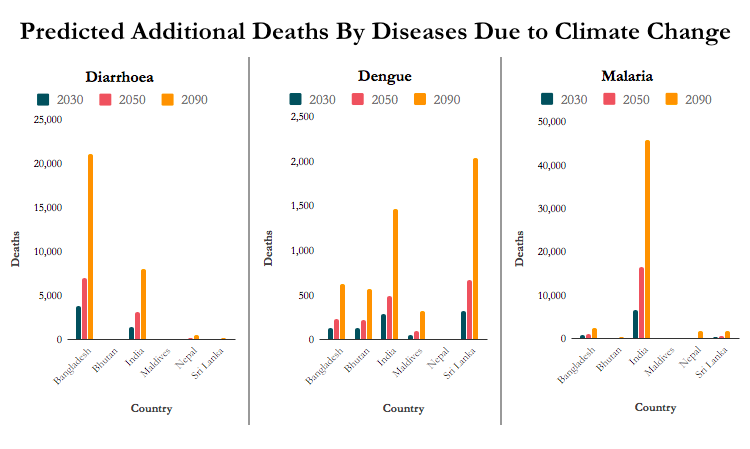Climate Change To Increase Malnourished Children By 7 Million In South Asia By 2050
Unabated global warming will pose risks to human health and reverse many health improvements made in the last couple of decades, according to a new report.
Per capita calorie availability could decline 7.6% below the 2000 levels in South Asia, and the number of malnourished children could increase seven million by 2050 compared to a no-climate-change scenario, according to the report, released by the Asian Development Bank.
The report assesses the impact of climate change on economic and health indicators in the Asian region, which includes a majority of the world’s poorest and most vulnerable.
Rice yields could decline in south India due to climate change
Climate change is expected to lower food production and economic gains from agriculture, the report said.
Rice yields may decline by 5% in the 2030s, 14.5% in the 2050s and 17% in the 2080s in the southern states of India while yields could potentially increase in the northern states.
Health impact to be harsh
The report quotes a World Health Organisation (WHO) prediction of the impact of climate change on child mortality and senior citizens and an increase in vector-borne diseases, such as malaria and dengue.
The assessments are based on a projection that the global temperature will approximately rise 1.1°C in the 2030s and 1.7° in the 2050s above the baseline temperature of 1961–1990.
The WHO estimated that 16,000 children below 15 years and 26,000 under five will die due to stunting attributed to climate change in 2030s across the Asia-Pacific region.
By 2050, climate change may cause 8,000 deaths due to diarrhoea and 21,000 due to stunting of children under five.
Heat-related deaths among the elderly — those above 65 years — will increase 20,000 by the 2030s and 52,000 by the 2050s.
Malaria and dengue may kill 3,000 annually by the 2030s and 10,000 annually by the 2050s.
The estimates represent a small portion of climate impacts on human health because many climate-sensitive health outcomes have so far been omitted from existing analysis, the study said.

Source: Asian Development Bank
(Yadavar is a principal correspondent with IndiaSpend.)


